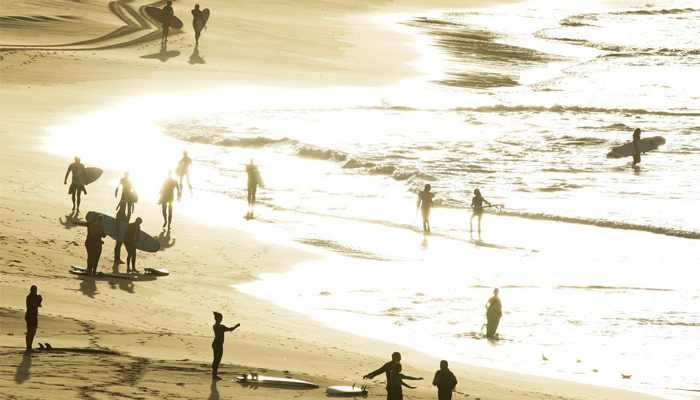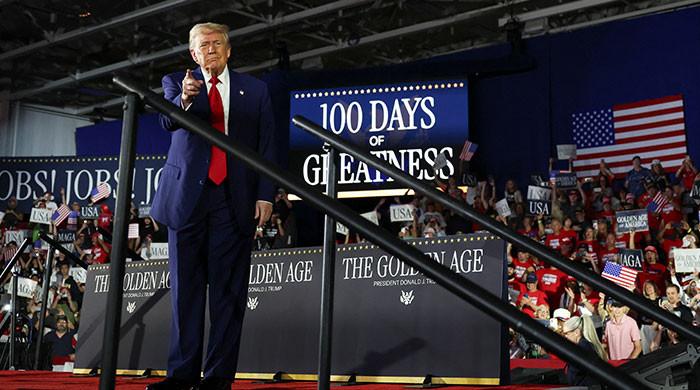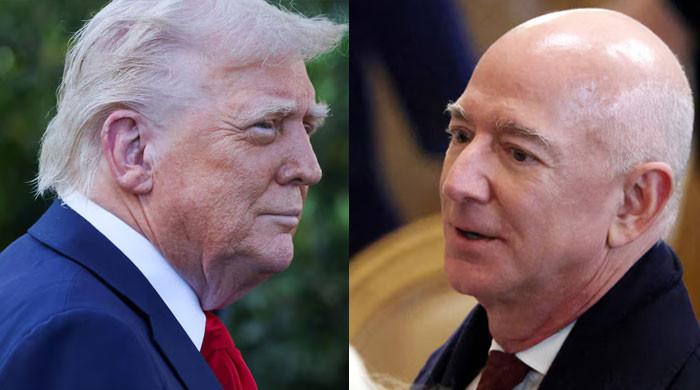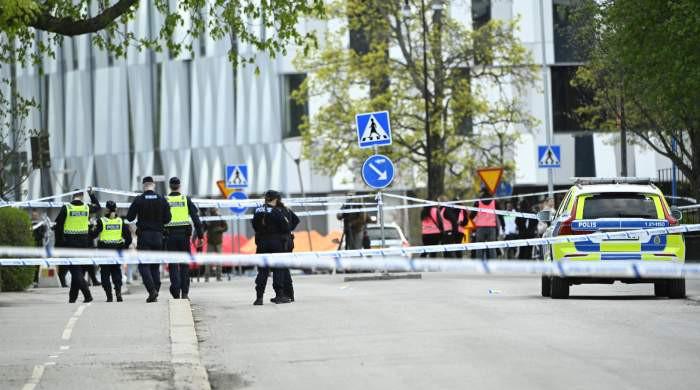Here's how Australia and New Zealand are easing virus lockdowns in Oceania
Australia has reiterated its two-people rule while PM Ardern emphasised New Zealand was 'not opening up people's social lives'
May 07, 2020

The Commonwealth of Australia, the biggest country in the Oceanic region and spanning almost the entire continent, has mixed views on easing the restrictions of a lockdown to contain the coronavirus pandemic — the first case of which was reported back in January 25, 2020.
It has been relatively good at containing the deadly virus and the toll immensely better than various other countries. Perhaps due to its population density of 3.3 persons per square kilometre, it reported almost 7,000 cases and registered less than a 100 deaths, while 27 of the almost 800 patients were said to be in a critical condition, as per Worldometers.
The spike in its COVID-19 cases was observed on March 22 but it was controlled shortly afterwards, around April 8.
One of the 14 countries of Oceania, Australia's six states and 10 territories have been divided on relaxing the lockdown measures, with the country maintaining its ban on anyone — sans nationals, permanent residents, and aircrew — entering or transiting, according to Al Jazeera.
However, the publication noted that the ban did "not apply to transit nationals of Fiji, Kiribati, Marshal Islands, Micronesia, Nauru, New Zealand, Niue, Palau, Papua New Guinea, Samoa (American), Solomon Island, Tonga, Tuvalu and Vanuatu".
On the other hand, the Australian nationals can only travel abroad if they possess residency of another nation, are part of air or sea crew, travelling to offshore plants for necessary work business or going for official government work.
Prime Minister Scott Morrison was set to officially make an announcement on the lockdown next week and has urged Australians to download the Covidsafe contact tracing app on their mobile phones. He told the media that only 3.5 million people had downloaded it but "we need that tool so that we can open up the economy".
Earlier today, Morrison said his children would start going to school next week, according to news.com.au.
The Guardian reported a day earlier many of the Australian states "have already started relaxing physical distancing laws, while others are holding firm".
Queensland has emphasised stringently on its two-person rule, even after easing the lockdown starting May. Residents can now step out for non-essential reasons, Premier Annastacia Palaszczuk said, and could also go out on picnics and weekend drives. A family — including those who lived alone — can now host two additional guests.
The state also reopened its national parks but advised people to stay within a 50km radius from their homes. However, local police was authorised to issue fines worth over $1,300 for individuals and more than $6,600 for companies violating the social distancing laws.
New South Wales Premier Gladys Berejilklian relaxed the lockdown significantly on 28 April, allowing since the start of May a family of two adults and their children to visit someone but only for "care" purposes — including for mental health. Retail stores opened but only for essential purchases and cautioned about social distancing.
"Exemptions also exist for priests or members of religious orders, and where someone is escaping potential injury, illness or harm," the publication wrote. Interestingly, shifting into a new house is allowed as are driving lessons.
"The laws allow for fines of up to $11,000 or six months’ imprisonment for those who leave the home without a reasonable excuse, plus an additional $5,500 fine each day the offence continues."
Premier Berejilklian said the lockdown had changed the way she thought about leadership, noting that she was now "leading without any care about the criticism, as long as I do the right thing by the citizens", as per 9news.
The state of Victoria, however, remains under the lockdown as Premier Daniel Andrews wished to be safer now than sorry later. Residents can only go out for five necessary reasons and only drop food and care items to relatives without stepping inside their homes. No social visits were allowed either.
"Victoria’s chief health officer, Dr Brett Sutton, tweeted that exemptions would be made for visiting romantic partners," the publication added. Fines, on the other hand, are more than $1,600 for a person and almost $10,000 for businesses.
Tasmania, too, remains under the lockdown. Its rules are similar but lax in terms of allowing outdoor exercise, going to the vet, and attending school if unable to do so at home. " Fines could be as much as $16,800 or six months in jail."
Western Australia has gone as far as allowing 10 people to gather in public, allowing its citizens to hold picnics or go fishing and camping and even hold a 10-member wedding. Parks and gyms remain closed but eateries could open for deliveries and takeaways. Fines aggregate to $1,000 per person and $5,000 per business.
The lockdown in Australian Capital Territory is also maintained but two guests are allowed at any residence if a distance of four square metres per person is observed indoors. Warnings, rather than fines, have been advised.
Northern Territory started relaxing its lockdown in a three-step process. People can go outdoors, use swimming pools, and play sports where there is no physical contact. Parks were opened and rules were relaxed to 10-person gathering, although it will be opened up to unlimited number of people by the weekend.
All businesses and sports events would be allowed to reopen in June and curfews relaxed.
Lastly, there has been no official easing of lockdown in South Australia as one was never imposed in the first place. Students have returned to schools but fines of $1,000 can be slapped for violating a 10-person rule.
Separately, Japan is reportedly the only country that has specifically banned people coming in from 73 nations, including Australia and New Zealand.
New Zealand, another country from the Oceania region but with a higher population density — 18.3 people per square km, emerged as a victor in the race against coronavirus among the countries other than China, as Prime Minister Jacinda Ardern announced end of April that there were "no widespread, undetected community transmissions".
As the country began a phased exit from lockdown and Ardern declared that New Zealand had "won that battle", Kiwis would see restrictions lowered down from the maximum Level Four, which had been in place for nearly five weeks.
It has reported almost 1,500 cases to date, with only 21 deaths so far; the first case was identified on February 28. Rigorous testing — 160,700 — also helped the country achieve its goal of putting a stop to infections although the pandemic had not been eradicated, as clarified by top government officials, including the premier.
Some businesses, takeaway food outlets, and schools would consequently be allowed to reopen. However, people were advised to remain indoors and maintain social distancing. While the economy was opening up, Ardern said New Zealand was "not opening up people's social lives", as per BBC.
"New Zealand's remote location and easily sealable borders played in its favour when the virus broke out, experts say," the publication wrote, but its policies and communication to its citizens was also highly commendable.
The nation has still not resumed any public gathering nor opened its shopping centres and border. Despite schools being open, pupils who could attend from home were advised to do so instead of physically attending classes, Guardian reported.
It has, interestingly, termed the new measures as "social bubbles," with the bubble being a household and people allowed to allow only two others living closeby to join their bubble for some time, according to MSN.
On the other hand, restaurants, apart from continuing business via delivery apps, also opted to offer their food on tables placed outside their outlets for people to collect but not linger around. Yahoo! Lifestyle, too, noted that contactless businesses were opening up again.
Shopping malls, pubs, and barbers were to remain closed for at least another couple of weeks.
Despite caution, however, some people violated the guidelines after New Zealand eased the lockdown to Level 3, leading Director-General of Health Ashley Bloomfield to say "we are nearly there but let’s not slacken off now", Bloomberg reported.
Further easing of the lockdown would be announced on May 11 as the government and health officials continue to monitor the situation and review policy impact, CNBC wrote.











